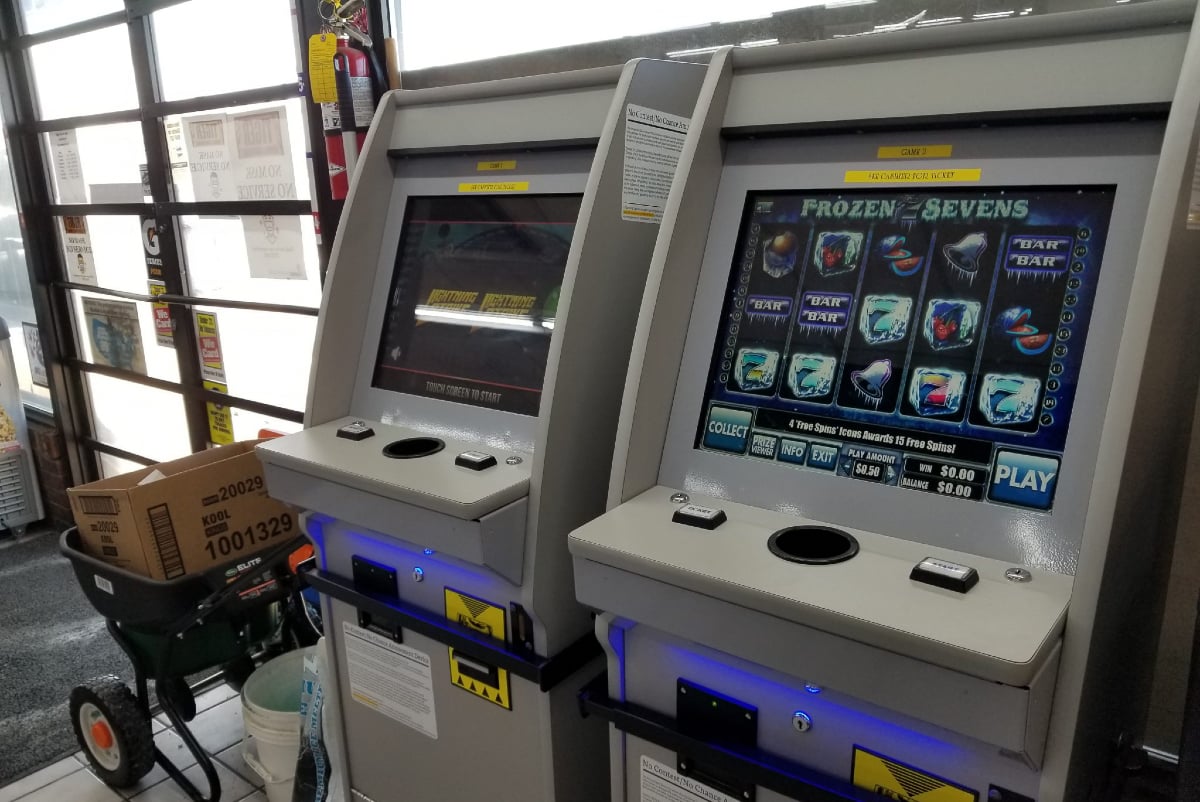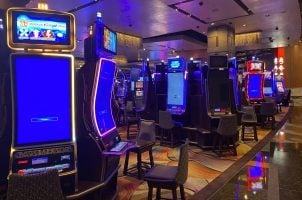Missouri Companies Engaged in No-Chance Gaming Increase Political Lobbying
Posted on: June 14, 2021, 09:08h.
Last updated on: June 14, 2021, 12:39h.
Two companies in Missouri that are deeply invested in so-called “no-chance” gaming are again donating to state lawmakers.

Torch Electronics manufactures what the company calls no-chance gaming machines. The slot look-alikes differ from the casino terminals in that they offer the player the chance to see whether the next play will win or lose.
Missouri courts have been trying to determine whether the machines constitute illegal gambling, or whether the preview option qualifies them as simple amusement devices.
No-chance devices began popping up throughout the state in 2019. A verdict on their legality remains unresolved.
Spend Money to Win Money
Critics of the no-chance machines say the cleverly designed screens often lead to players rarely using the preview option to see if the next play will win.
Another reason players keep playing even when they do check and learn that the next spin loses is for the chance to inch closer to the winning spin. And then, opponents of the devices claim, there are some people who simply enjoy the thrill of gambling so much that they test their luck without being given the results beforehand.
“You’re not alone if you’re wondering why anyone would play without that [preview] information,” As the Kansas City Star says. “Apparently, though, thousands of Missourians want to gamble so badly that they don’t ask for it.”
The coin-operated devices were turned off for much of 2020 on state orders during the COVID-19 pandemic. But they are back up and running in 2021. The Missouri Gaming Commission estimates that there are as many as 20,000 unlicensed no-chance gaming devices operating in the state.
Political Contributions
Torch, along with Warrenton Oil, which owns 36 FastLane convenience stores and hosts the no-chance machines, have both recently donated heavily to state political groups.
The Missouri Independent reports that the two companies recently donated $350,000 to six political action committees (PACs). All six of the organizations are tied to Steve Tilley, the former Missouri House Speaker who resigned from the post in 2012 to form his own lobbying firm.
PACs are tax-exempt under the US Internal Revenue Code 527 and are not subject to spending limits. The organizations are formed to pool money from donors in order to influence state or federal government actions.
The 527 organizations that received Torch and Warrenton contributions were MO Majority PAC, Missouri Growth PAC, Missouri C PAC, Missouri Senior PAC, Missouri AG PAC, and Conservative Leaders of Missouri.
Tilley is tied to the six PACs, and he also lobbies on behalf of Torch in the Jefferson City capital.
The Missouri Gaming Commission has deemed Torch’s no-chance products as gambling devices, and are therefore illegal. Currently, the machines are not regulated in any capacity, nor are they taxed.
State Inaction
The Missouri General Assembly adjourned its 2021 legislative session in May. The Republican-controlled House and Senate did so without passing legislation that determines the legality of the no-chance machines.
State Sen. Denny Hoskins (R-Warrensburg) introduced legislation that would have deemed the no-chance devices as illegal gambling. But the bill failed to gain adequate support.
My biggest fear is we have a lot of unregulated and untaxed gray machines,” Hoskins said this month.
Gross gaming revenue from slot machines at the state’s 13 licensed commercial casinos is taxed at 21 percent. That money is allocated for state education.
Related News Articles
PayPal Bashed Over Credit ‘Lag’ That Let Gambler Spend £150,000 in a Day
Caesars, MGM Hacks Spur Uptick in Cybersecurity Interest by Casino Operators
Most Popular
LOST VEGAS: The Foster Brooks Robot at MGM Grand
Bally’s Sets Date for Tropicana Las Vegas Implosion & Party
Most Commented
-
VEGAS MYTHS RE-BUSTED: You Don’t Have to Pay Resort Fees
— August 2, 2024 — 16 Comments -
VEGAS MYTHS RE-BUSTED: Elvis Was a Straight-Up Racist
— August 9, 2024 — 11 Comments -
ANTI-SOCIAL BEHAVIOR: Vegas Casino Buffet Stunt in Poor Taste Goes Viral
— August 16, 2024 — 7 Comments -
VEGAS MYTHS RE-BUSTED: The Strip Tried Appealing to Families and Failed
— August 23, 2024 — 7 Comments
















Last Comment ( 1 )
These machine are and should be considered illegal. One I personal have observed people at these machine. I see people go station to station to just check these machine to get just enough money for cigs, alcohol, and illegal drugs. It has increased crime rate for many areas because people are stealing and selling those items just to get enough money to play these machine hoping to hit a good “lick”. If you sit at one of these stations just for a evening you won’t believe what you see or hear. They most definitely need to be removed. I have seen young kids playing on them knowing they aren’t 21. The gas stations clerks are busy they don’t have time to watch every single person on them. And are not paid enough to do so!